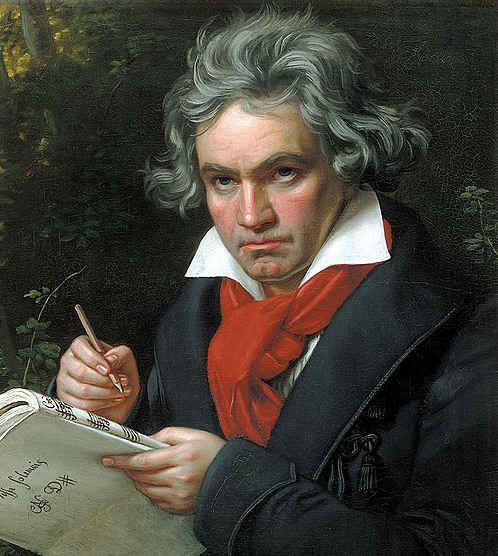
Ludwig van Beethoven was born in Bonn, Germany on December 16, 1770. He was a giant in the classical music genre, having composed a variety of sonatas, concertos, overtures, quartets and 9 celebrated symphonies. Music historians generally divide Beethoven’s music into three periods. The first period, his earliest works, were in the Viennese style like the music of Hayden and Mozart. It was in the middle period that Beethoven broke with classical tradition and entered an era sometimes referred to as the “heroic” period, in which he experimented with louder and more robust sounds as his deafness increased. It was in this period that he wrote Symphonies 3 through 8. His third symphony, the Eroica, was originally dedicated to Napoleon, but Beethoven later retracted his dedication when Napoleon’s armies marched into the composer’s homeland. It was in this Eroica symphony that he ushered in a new style that came to be known as the “romantic era” in classical music. Beethoven’s compositions remain popular more than 200 years after their creation and Beethoven is judged by historians of music to be one of the greatest of all the composers in the classical music genre.
